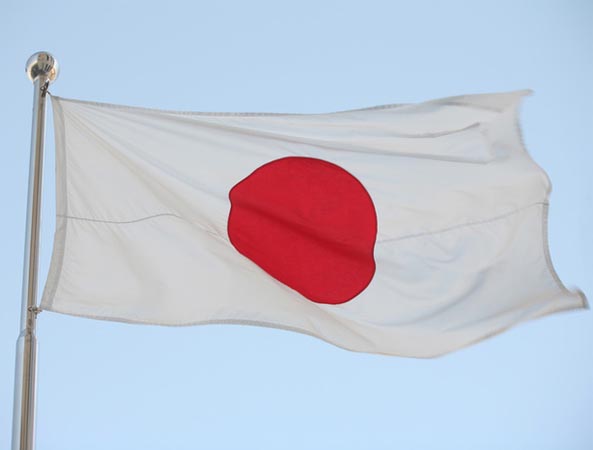In historic vote, Japanese choose a fresh start
 Tokyo - Their patience ran out. Japan's voters finally said "no more" to over half a century of a virtual political monopoly and instead let their hopes go wild in handing the main opposition Democratic Party of Japan (DPJ) with a landslide victory on Sunday.
Tokyo - Their patience ran out. Japan's voters finally said "no more" to over half a century of a virtual political monopoly and instead let their hopes go wild in handing the main opposition Democratic Party of Japan (DPJ) with a landslide victory on Sunday.
Japan readied itself for a new watershed in its modern history, with DPJ successfully ending the 55 years of almost uninterrupted power enjoyed by the Liberal Democratic Party (LDP).
It is unquestionable that LDP helped Japan emerge from the ravages of World War Two and rise up to become the world's second-largest economy.
But as Japanese feel the pinch of an economy gone wrong and believe that the LDP has run out of answers, voters have now turned to the alternative party which promised to satisfy their needs. It is now up to the DPJ to restore Japan as an economic powerhouse.
Whether or not DPJ can actually solve citizens' rising worries about their future depends on how the party can make up for its lack of experience running the government. Its leader Yukio Hatoyama, who is most likely to become Japan's next prime minister, can count at least maintain solidarity within his side's ranks, experts say.
Among the most pressing issues is the ageing society. Japan's social security programme has gone sour during LDP's reform-oriented rule, leaving voters worried about their future. With the senior population creeping up to nearly a quarter of the population and the birthrate falling, people wonder how the nation is going to survive.
"The cost of old-age care has increased for us, and I'm getting more worried about ageing," a 67-year-old homemaker told Mainichi Shimbun.
"Young people are not necessarily happy either since they live in anxiety about their career, housing, marriage and chances to raise families," the Tokyo resident added.
Additionally, the domestic job market looks grim without any recovery seen soon. One out of three workers, mostly in the younger generation, is hired on a temporary basis - the consequence of LDP- led deregulation. Unemployment hit a record 5.7 per cent in July, with forecasts of a rate of 6 per cent by the end of the year.
With these dark clouds hovering over Japan, voters have now taken one of their most difficult and daring decisions yet in answering the DPJ's calls to trust in its ability and let it, though inexperienced, take the reins of power.
But experts caution that it would take some time before the DPJ can build on that trust and revitalize the economy. However, with the control of the House of Councillors, Japan's upper chamber, the party may have a better chance of driving the country.
For starters, the DPJ plans to review LDP's record stimulus package and will try to shift the economy away from being export- driven and instead boost households' disposable incomes in order to stimulate domestic demand.
While pledging to offer a monthly child-rearing allowance, the DPJ also has promised to promote development of cutting-edge and environmental technologies and create jobs in agriculture, health care and care for the elderly.
However, the party has been criticized for how it plans to finance its costly economic revamping plans, which would come on top of shouldering a national debt that exceeds 160 per cent of Japan's gross domestic product.
Experts have also criticized a lack of clear direction in the DPJ on foreign policy and national security issues. No party can successfully run the government without it, they say.
"Japan needs to seriously rethink where its position should be in international relations," Jitsuro Terashima, chairman of the Japan Research Institute, told Kyodo News Agency.
With the 62-year-old political centrist Hatoyama, other experts say Japan has a chance to grow more independent of the United States and be more self-assertive in the international community.
"We want to move away from US dependency to a more equal alliance," said Hatoyama, predicting the dawn of a multi-polar era and an end to US-led globalism.
To gain a voice for Japan in the international community, for instance, Hatoyama wants to amend the country's pacifist constitution to allow for military deployments under UN mandates. The current US- drafted charter bars Japan from having armed forces which go beyond the country's self-defence.
Regarding Japan's neighbours in East Asia, Hatoyama is confident that relations would improve under his rein as he would end the customary visits by Japanese prime ministers to the controversial Yasukuni Shrine, which honours 2.5 million war dead, including a number of war criminals.
For DPJ members with various backgrounds such as LDP, the Social Democratic Party and trade unions, the common enemy is no longer the ruling coalition but instead the growing problems inside and outside of Japan.
It now is up to Hatoyama's political leadership skills to answer the question of whether Japan can now start a new chapter in its history. (dpa)